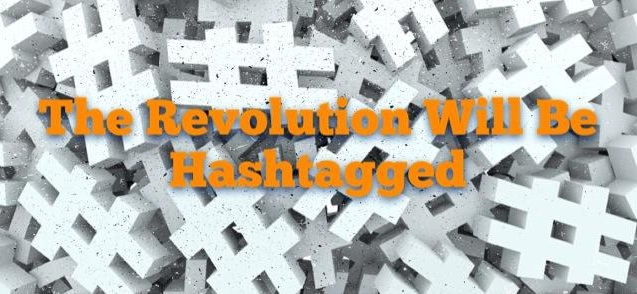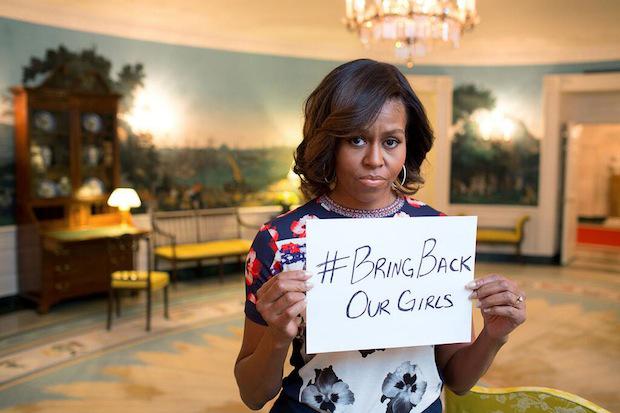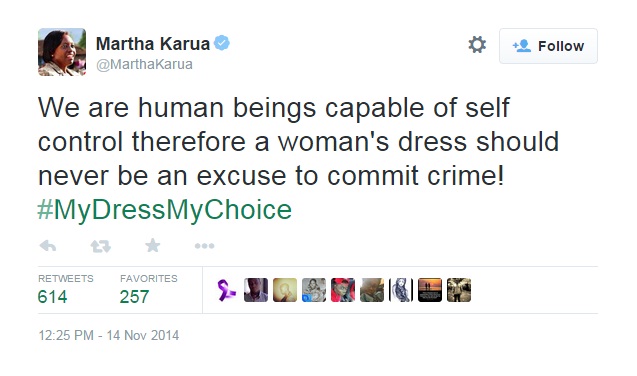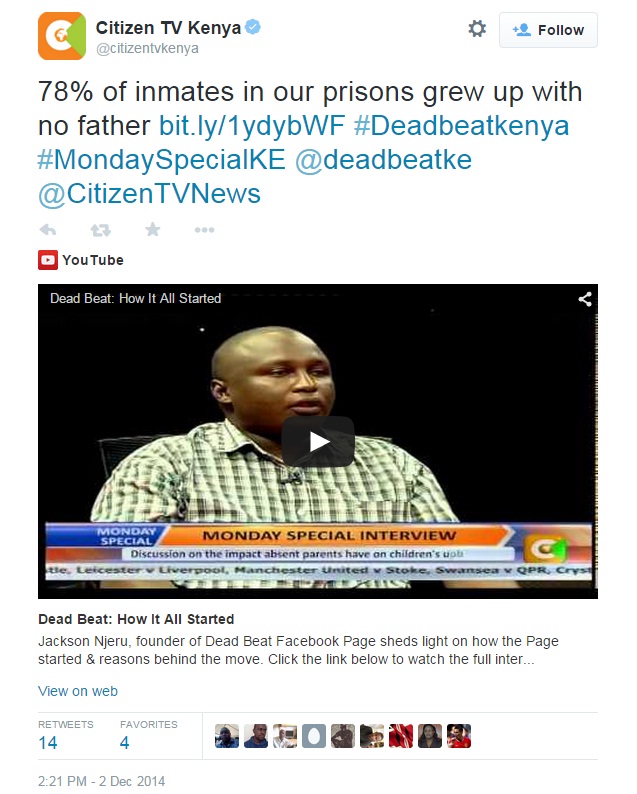Standing up for the Right Thing: The Role of Twitter Hashtags in African Social Media Activism
- Victor Nzomo |
- January 3, 2015 |
- CIPIT Insights,
- Social Media and the Law

On April 14, 2014, the Nigerian militant Islamist group Boko Haram kidnapped 276 school girls in the town of Chibok. “Boko Haram” translates to the unacceptance of Western education, and the group allegedly performed this act to showcase their beliefs of the place women should hold in society; working in the home and not attending school. As this occurred, the Twitter and Facebook spheres exploded with influencers and average joes holding up signs in a photograph with the hashtag “#BringBackOurGirls” on it. According to the Mail & Guardian (M&G), the hashtag #BringBackOurGirls became a global social media rallying cry to generate attention for the girls.

In a recent article, M&G highlighted Africa’s top 15 trending Twitter #hashtags in 2014 noting that twittersphere in Africa is growing and developing: with the Middle East and Africans accounting for 7.2% of Twitter users worldwide. In this regard, M&G states that: “Hashtags play a vital role in the spread of information, as a form of activism and in some cases, as a hilarious way of making a point. It turns out that Johannesburg is the city with the most geo-located tweets, followed by Cairo and then Nairobi – a trend which can be picked up when looking at the continent’s most viral tweets.”
Other top hastags in Africa throughout 2014 included #FreeAzyz, #JollofGate, #AfricaStopEbola, #Orwell, #MousserContreEbola, #IDreamofANigeria, #ThingsLongerThanPistoriusSentencing, #PayBackTheMoney, #RememberingMandela, #EvilNanny, #ThingsIloveaboutSouthSudan and #JusticeforHanna.
In Kenya, two of the top hashtags of 2014 reported by M&G were #MyDressMyChoice and #DeadBeatKenya.

On November 11, 2014, a woman standing at the Embassava bus terminus on Tom Mboya Street in Nairobi was surrounded by a dozen of men who tore off the woman’s clothes and forced her to the ground. Her crime? She was dressed so scantily that some men felt the need to teach her a lesson in propriety. The whole thing was videotaped and put up on YouTube and also widely circulated on Whatsapp. Thereafter there were at least two other videotapped incidents of women being attacked and stripped throughout Nairobi. “Kilimani Mums”, a little known Facebook group, rallied the entire country in condemning the stripping and inspired the hashtag #MyDressMyChoice. Women, mostly from the Kilimani Mums group, went beyond hashtag activism, and rallied people to join a demonstration on November 17, 2014 against the harassment of women.
These cases of “slut-shaming” (stripping) reminded this blogger of the #PoliceUniform hashtag earlier in the year involving a female police officer Linda Okello who was sanctioned and unfairly transferred by the National Police Service for wearing a tight uniform that accentuated her curvaceous posterior. As a result of a wide-spread social media uproar over the sanctions by NPS against Akello, the transfer was quickly reversed. In this regard, it is clear to see that the hashtags are an affirmation of the fundamental freedoms and basic rights enshrined in the Constitution. Article 28 of Constitution, which is the cornerstone of the Bill of Rights, states that every person has inherent dignity and the right to have that dignity respected and protected. With specific regard to the rights of women invoked through both hashtags, Article 27 on equality and freedom from discrimination clearly states that:
“The State shall not discriminate directly or indirectly against any person on any ground, including race, sex, pregnancy, marital status, health status, ethnic or social origin, colour, age, disability, religion, conscience, belief, culture, dress, language or birth…A person shall not discriminate directly or indirectly against another person on any of the grounds specified or contemplated in clause 4”

In a previous blogpost here, we examined the #DeadBeatKenya trending topic which sprung from a facebook group called “Dead Beat Kenya” that names and shames absentee parents who fail to support their children. Jackson Njeru, the founder and the administrator of the page, claimed the goal of #DeadBeatKenya was to hold accountable negligent fathers and mothers by featuring detailed stories and photographs of the abandoned partners and children. #DeadBeatKenya‘s shocking and shaming approach attracted worldwide attention because some of the individuals featured on the social media page included politicians, celebrities, entrepreneurs, athletes and other public figures.
In sum, this blogger concurs that the twittersphere in Africa is indeed growing and developing. From #sidibouzid to #jan25 and beyond, hashtags in Africa continue to be an important means of expression, speech, protest and assembly by groups of people around a common cause. This blogger will continue to keenly monitor the impact of social media tools in activist movements.
